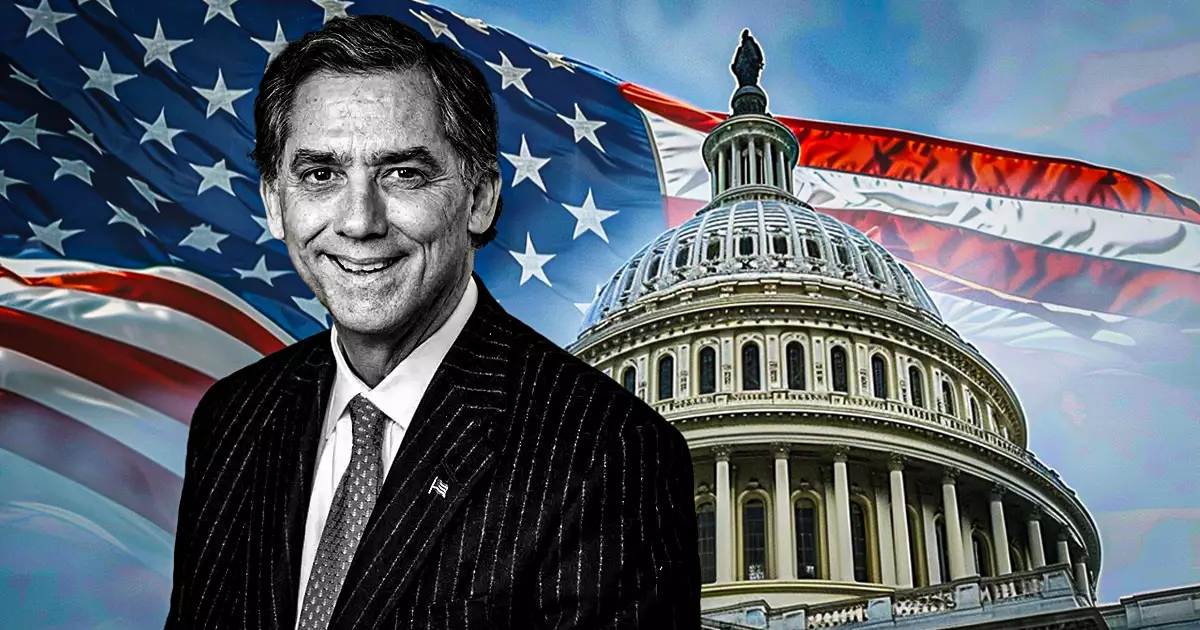As the newly appointed chair of the House Financial Services Committee, Congressman French Hill is taking significant steps towards redefining the regulatory landscape of cryptocurrencies in the United States. His recent conversation on CNBC has illuminated the uncertainties that have long plagued the crypto sector, emphasizing a need for definitive guidelines. Hill’s agenda signifies a notable shift in legislative focus, aiming to harmonize regulations while nurturing innovation within the financial technology ecosystem.
At the core of Hill’s proposal is the urgent call for regulatory clarity, which he deems essential for the burgeoning crypto industry. Highlighting the confusing and chaotic nature of current regulations, Hill stated, “We need a market structure for crypto… That is a top priority for us.” This declaration underscores the critical need for an organized framework, as the current landscape has left many businesses uncertain about compliance. With the total value of the US crypto industry exceeding $1 trillion, there lies an inherent risk associated with ambiguity that Hill seeks to mitigate.
To achieve this clarity, Hill envisions streamlining market oversight and instituting standardized rules for digital assets. Such measures aim to cultivate an environment that not only protects consumers but also catalyzes innovation. By reducing unnecessary banking restrictions and promoting the process of initial public offerings (IPOs), Hill is advocating for a more accessible and inviting market for both companies and investors.
Hill’s initiative builds upon the Fair Innovation and Technology for the 21st Century Act (FIT 21), which had been introduced by his predecessor, Patrick McHenry. Although FIT 21 remains mired in Senate discussions concerning its funding and potential effects on market stability, Hill’s commitment to revitalizing this legislation demonstrates his prioritization of the crypto sector’s regulatory needs. Clarity from the FIT 21 framework could empower businesses and bolster investor confidence, helping the sector navigate through its complexities.
In addition to this regulatory overhaul, Hill has also weighed in on the debated notion of a national Bitcoin reserve. With momentum gathering in states like Texas and Wyoming, and political backers such as Senator Cynthia Lummis and President-elect Donald Trump, this idea has gained traction. Nevertheless, Hill cautioned against hasty adoption, raising valid concerns over volatility and the potential for federal overreach. He remarked, “I’d have to think long and hard about what the value of that [Bitcoin reserve] is for the US and the Treasury,” indicating a prudent approach in navigating the uncharted waters of digital asset reserves.
As Hill readies himself to steer the committee, the strategies he implements concerning crypto, banking reform, and capital formation will undoubtedly influence the trajectory of economic policy in the US. The pursuit of a balanced regulatory regime aims not only to protect consumers but also to ensure that the US continues to thrive in a rapidly advancing global financial landscape. As stakeholders await further developments, Hill’s efforts may signal a turning point in the dynamic interplay between innovation and regulation in the digital finance space.
















Leave a Reply